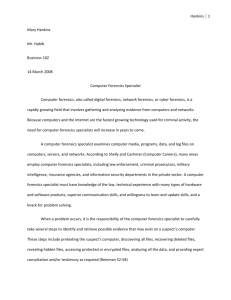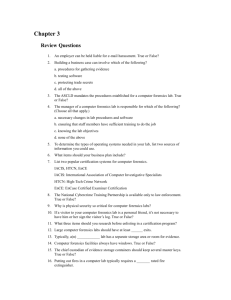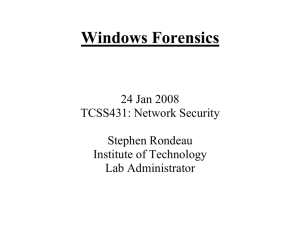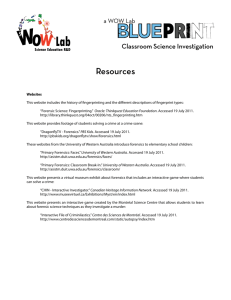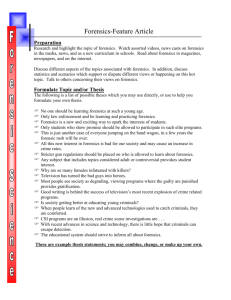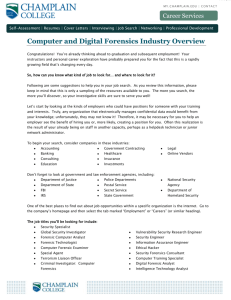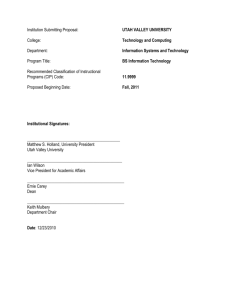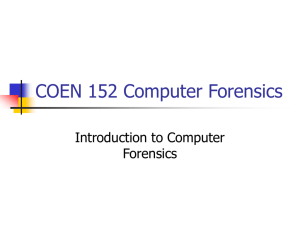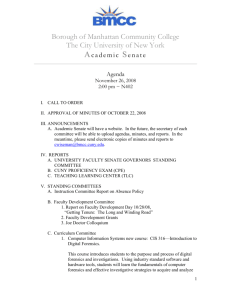computerforensicsspeialist.doc - Kiamichi
advertisement
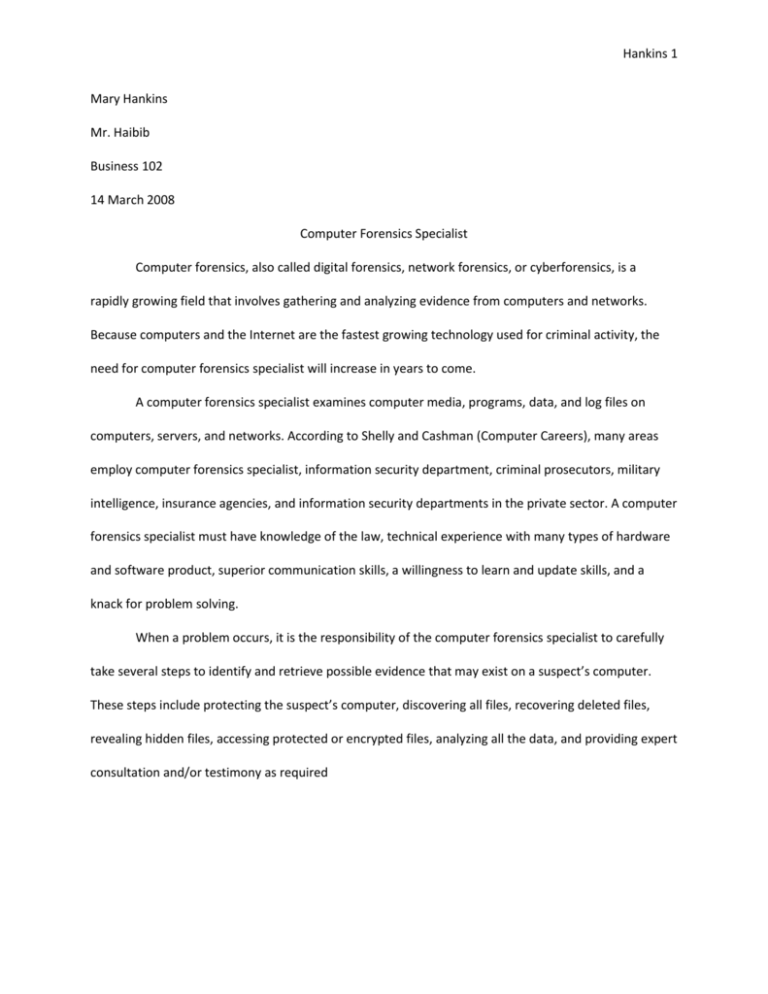
Hankins 1 Mary Hankins Mr. Haibib Business 102 14 March 2008 Computer Forensics Specialist Computer forensics, also called digital forensics, network forensics, or cyberforensics, is a rapidly growing field that involves gathering and analyzing evidence from computers and networks. Because computers and the Internet are the fastest growing technology used for criminal activity, the need for computer forensics specialist will increase in years to come. A computer forensics specialist examines computer media, programs, data, and log files on computers, servers, and networks. According to Shelly and Cashman (Computer Careers), many areas employ computer forensics specialist, information security department, criminal prosecutors, military intelligence, insurance agencies, and information security departments in the private sector. A computer forensics specialist must have knowledge of the law, technical experience with many types of hardware and software product, superior communication skills, a willingness to learn and update skills, and a knack for problem solving. When a problem occurs, it is the responsibility of the computer forensics specialist to carefully take several steps to identify and retrieve possible evidence that may exist on a suspect’s computer. These steps include protecting the suspect’s computer, discovering all files, recovering deleted files, revealing hidden files, accessing protected or encrypted files, analyzing all the data, and providing expert consultation and/or testimony as required Hankins 2 Works Cited Davies, Habika. "Text messaging, Instant Meassaging, and Picture Messaging Services." Computing in Today's World Janusry 2008: 34-42. Podpora, Maxine C., and Adelbert D. Ruiz. Advances in Wireless Internet Access Point Technology. Dallas: Wells Publishing, 2008. Shelly, Gary B., and Thomas J. Chashman. Computer Careers. Course Technology. 7 March 2008 <www.scsite.com/wd2007/pr2/wc.htm>.
